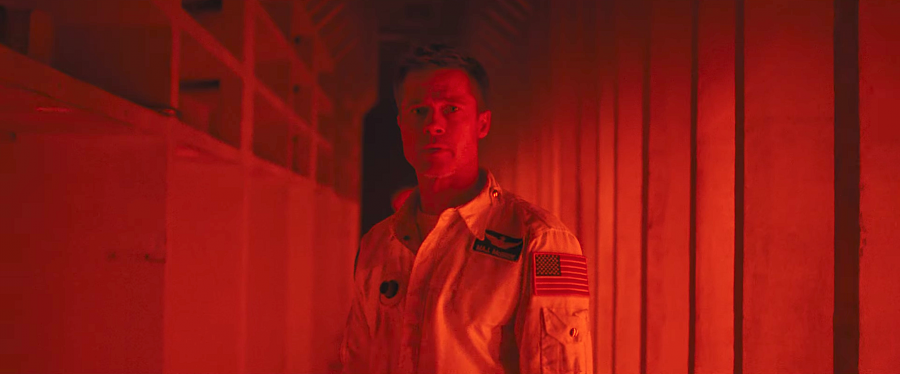Right after starring in a movie set the same year as the first moon landing, Brad Pitt returns to explore outer space first-hand in sci-fi blockbuster Ad Astra…
Ad Astra (Latin for “to the stars”) begins in the near future with astronaut Roy McBride (Brad Pitt) falling from the International Space Station after it is hit by an immense power surge. Roy narrowly survives the plunge back into orbit and is told that his father (Tommy Lee Jones), who was presumed dead after a gruelling search for intelligent life, is in fact alive and could be responsible for the disaster.
Director James Gray gives us a convincing take on the future – instead of hyperspace and holograms, humanity’s new scientific developments include Virgin Atlantic trips to the moon and phones made almost entirely out of glass. The realism pays off, as beneath the celestial spectacles, Ad Astra is a grounded and relatable story about rebuilding bridges with loved ones who have drifted away from us.
This theme manifests itself in different ways, such as the parallels between Roy’s oath as an astronaut and his broken marriage vows, or when he sends a transmission to his father from a station on Mars, which is reminiscent of leaving a voicemail for an estranged friend or relative who won’t answer your calls. Scenes like this give Ad Astra pathos and help the audience to invest in Roy’s story.
That being said, there’s a drawback to the film exploring loneliness and alienation to this extent: Roy’s quest is pretty much the film’s only plotline, so there’s never any reason to connect with characters besides him and his father. For this reason, the story as a whole progresses as slowly as an astronaut taking a stroll on the moon, with long stretches where it feels like not all that much is happening.
The film’s visuals are by far its greatest strength, with every frame being a treat for the eyes. Stylish and intricate set design lends itself to magnificent Kubrick-esque shots from cinematographer Hoyte van Hoytema, with ambient lighting that fills the screen with colour. The CGI is top-notch too, particularly in a hair-raising moon buggy chase towards the end of the first act.
These brilliant sights are accompanied by a bold original score by composer Max Richter. Despite a lack of many memorable melodies, the orchestral soundtrack still perfectly captures the sheer vastness of Roy’s surroundings and further helps the audience to immerse themselves in the wider reaches of the solar system.
Ad Astra is a must-see for any fan of modern space films such as Gravity and The Martian, fulfilling that desire to boldly go where none have gone before without having to pass the NASA selection test. The film does exactly what sci-fi stories should do and blows up something relatable on a grand scale – and while the plot is a little less than stellar, it’s absolutely one of the best-looking movies of the year.
By Jamie Morris
Feature image credit: Fox

